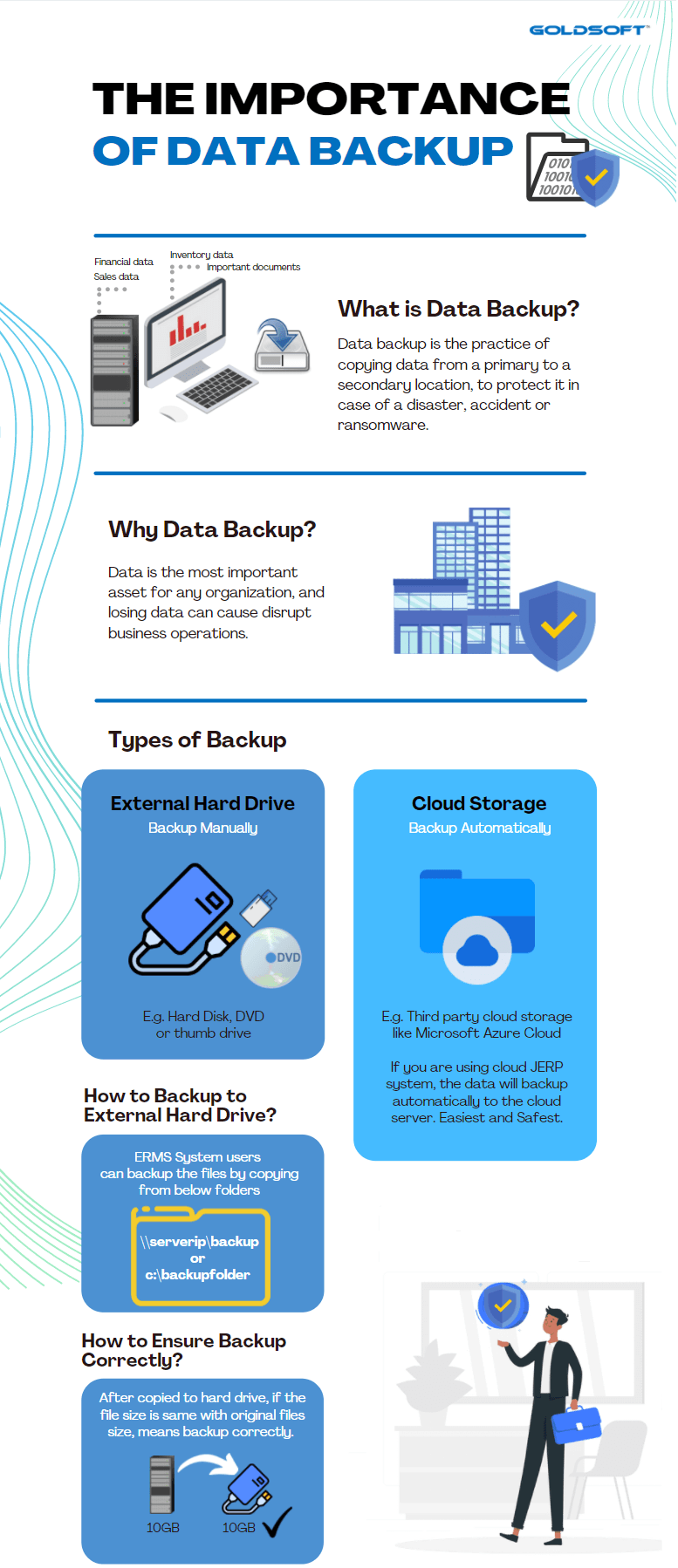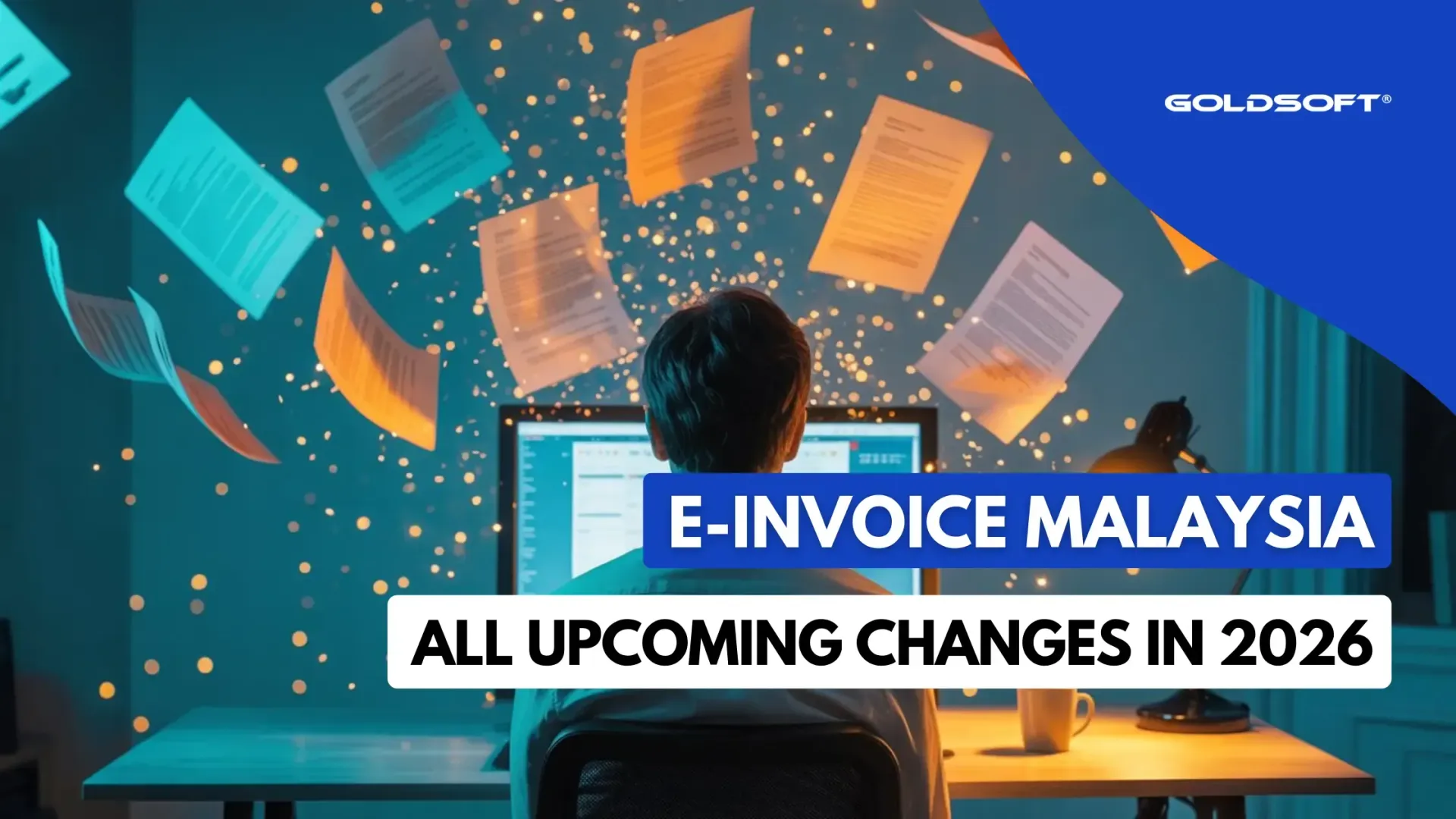The Importance of Data Backup
July 30, 2021
To prevent data loss in a company, we always advise our customers to back up their data everyday. See below infographic for more information.

Data backup is the practice of copying data from a primary to a secondary location, to protect it in case of a disaster, accident or ransomware.
Why Data Backup?
Data is the most important asset for any organization, and losing data can cause disrupt business operations.
2 Types of Backup: Manual/ Auto
1. Backup to External Hard Drive Manually
e.g. Hard Disk, DVD or thumb drive
ERMS System users can backup the files by copying from a path given by our technical teams.
How to ensure backup correctly?
After copied to hard drive, if the file size is same with original files size, means backup correctly.
2. Backup to Third Party Cloud Storage Automatically
e.g. Microsoft Azure Cloud
If you are using cloud JERP system, the data will backup automatically to the cloud server. Easiest and safest.
For more information about data backup, please contact our technical team at 03-2732 8833.
Share
Recent Articles





